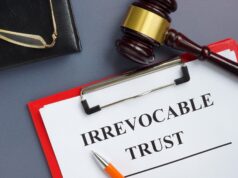Estate planning is not just about distributing wealth after one’s demise. It’s a comprehensive approach to ensure that your legacy, both material and immaterial, is preserved and passed on in the manner you desire. It goes beyond mere wealth distribution, encompassing values, wishes, and the well-being of loved ones.
Pro Tip: Estate planning is not a one-size-fits-all approach. It’s essential to tailor your plan according to your unique circumstances and desires.
The Role of Wills and Living Trusts

A will is a legal document that outlines how your assets should be distributed after your death. A living trust allows you to place your assets under the care of a trustee for your benefit during your lifetime and for the benefit of your beneficiaries after your death.
Both have their advantages and limitations. For instance, while wills are generally easier to set up, living trusts can help avoid the lengthy probate process.
Fun Fact: Did you know that a living trust can be set up to operate while you’re still alive? It’s a great way to manage assets if you become incapacitated.
The Complex Terrain of Taxes
Understanding the intricacies of estate taxes is crucial for effective estate planning. When you transfer assets, whether after death or as gifts during your lifetime, taxes can take a significant chunk.
However, with the right strategies, you can mitigate the impact of these taxes. For instance, the estate planning process can help you understand the nuances of gift taxes and how to share assets while living without incurring hefty tax bills.
Guardianship and Care Provisions
If you have dependents, especially minors or those with special needs, appointing guardians is a pivotal aspect of estate planning. It ensures continuity of care and provides a safety net for your loved ones. Addressing special needs is particularly crucial, as these individuals might require specialized care and financial arrangements.
Pro Tip: When appointing a guardian, always have a candid conversation with the potential guardian to ensure they’re up for the responsibility.
Power of Attorney and Healthcare Directives

A power of attorney allows you to designate someone to make decisions on your behalf, should you become unable to do so. This can relate to financial matters, health decisions, or both.
Healthcare directives, on the other hand, are specific instructions about medical decisions if you’re incapacitated. By having these in place, you not only ensure your preferences are honored but also provide clarity to loved ones during challenging times.
Trusts Beyond the Living
Testamentary trusts come into play after your death, as specified in your will. They allow you to extend your influence, ensuring assets are used in specific ways.
Charitable trusts, meanwhile, enable you to leave a lasting impact by supporting causes close to your heart.
Both can be tailored to align with your objectives, ensuring your legacy is preserved as you envisioned.
Fun Fact: Charitable trusts can offer tax benefits, making them a win-win for both the donor and the beneficiary.
Real Estate and Business Succession Planning
Incorporating real estate into your estate plan ensures that properties are transferred smoothly, minimizing potential disputes. If you own a business, succession planning is paramount. It’s about ensuring a smooth transition, passing on business ventures to the next generation or a chosen successor, and preserving the value of the business.
Digital Assets and Online Presence

In today’s digital age, our online presence and digital assets have become an integral part of our legacy. From social media accounts to digital currencies and online businesses, these assets require careful planning.
Managing and transferring digital assets can be tricky due to varying platform policies and legal considerations. It’s essential to have a clear plan in place, detailing how these assets should be handled, and ensuring sensitive information remains protected even after your departure.
Pro Tip: Regularly update your list of digital assets, including passwords, and ensure your designated executor or trustee is aware of and can access this information when needed.
Family Dynamics and Conflict Resolution
Every family is unique, with its dynamics, complexities, and sometimes, conflicts. Estate planning can become a tool to navigate these intricacies. By clearly outlining your wishes, you can prevent potential disputes and ensure a harmonious execution of your estate.
Open communication is key. Discussing your plans with family members can help manage expectations and reduce misunderstandings.
Fun Fact: Studies have shown that open communication about inheritance can significantly reduce potential family conflicts in the future.
Regular Reviews and Revisions
Estate planning is not a one-time task. As life evolves, so do our relationships, assets, and wishes.
Regularly reviewing and updating your estate plan ensures it remains aligned with your current goals and circumstances. Whether it’s a change in marital status, the birth of a child, or the acquisition of new assets, these life changes often necessitate plan adjustments.
Professional Guidance

While it’s possible to start the estate planning process on your own, professional guidance can be invaluable. Estate planning attorneys bring expertise to the table, ensuring all legal nuances are addressed.
Collaborating with financial advisors can also provide a holistic approach, tailoring strategies to individual financial situations and goals.
Crafting Your Legacy
True legacy goes beyond material possessions. It’s about the values, wisdom, and memories you leave behind.
Estate planning can also encompass impactful charitable giving, ensuring your values continue to make a difference. By considering non-material assets, you foster a multi-faceted legacy that resonates on a deeper level with the generations to come.
The Empowerment of Estate Planning
Estate planning is empowering. It allows you to take control of your future, ensuring that your loved ones are provided for and that your wishes are respected.
It’s more than just distributing assets; it’s about leaving a mark, a legacy that speaks of your life, values, and the love you hold for those you leave behind.
Get a clearer perspective on estate planning by debunking common myths and learning the facts, all of which align with our article discussing strategies for a well-prepared future in estate planning.
The Time to Plan is Now

Procrastination can be the enemy of effective estate planning. Embracing the importance of proactive planning today can save a lot of stress and uncertainty for your loved ones in the future.
By embodying a secure and thoughtful future, you embark on a journey that ensures your legacy is preserved and celebrated as you intended.










